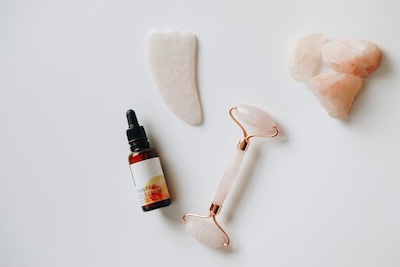With the pandemic, many people have gotten out of their exercise routines. What would you say to anyone trying to be more consistent again?
Start small. An antagonist of creating or recreating a habit is taking on too much too soon. Focus on building up in smaller increments and appreciating the success of small gradual improvements. Gradual improvements are more likely to be maintained and last for a longer period of time. One meal at a time, one workout at a time, one day at a time.
How do you recommend people get motivated?
Again, set smaller attainable goals first. The confidence you gain from minor successes will further your confidence and motivate you to take greater steps. The voice of motivation becomes louder when we can reflect on past successes and it’s only logical to increase your inventory of successes to reflect upon. Being successful at the little things enhances your overall motivation to go further. I also find listening to intense motivational speakers on YouTube or your favorite pump up song also can be pretty helpful.
There’s a debate: cardio vs. weights. What do you think?
It depends on what you mean. In terms of aesthetic benefits, what you are attempting to look like is a factor to consider in how these two aspects of fitness training are balanced. Without a doubt, they have both been proven to be necessary in the overall process of health and wellness for various reasons and generally compliment each other. For instance, briskly walking with your dog is more of an aerobic activity that cardio would make easier. Carrying boxes up the stairs is more of a strength activity, which will be enhanced by weight training. The simple answer is there is no debate in terms of the benefits in overall quality of life. The question of balancing the two, ultimately depends on what your overall objectives are. So in the weights vs. cardio debate, there’s actually is no debate. Both are absolutely necessary to build and maintain a strong toned physique and healthy body. Anyone who denies this is probably just trying to sell you something.
There are people who work out infrequently and there are the type-As, who seem to be able to push themselves almost daily. What’s your advice on letting your body recover for optimum results? Recovery can be an easily underrated aspect of overall health and wellness. Basically, your muscles need time to repair. When they’re growing, they produce small micro tears which is a natural component of muscle fiber increase. Good nutrition and recovery is how the muscles repair to become stronger. Inevitably, reduced recovery for high levels of physical activity, no matter what “Type” you are, will eventually result in injury.
Some people say their body responds to different exercises better than others? What might work for one person may not work as well for other people. Is there truth to this? Or does everyone benefit from a similar regimen?
Apart from medical concerns like thyroid issues, the science does say that people have different physical responses to exercise. But more in the sense of genetic makeup, thus different aesthetic muscle shaping. This is why when you look at bodybuilders, the shape of their muscles differ from bodybuilder to bodybuilder. However, at the end of the day, calories are king. If you are at a safe calorie deficit in comparison to the daily calories you burn, weight loss will occur. Again, it all ultimately depends on what you're physically trying to achieve.
Diet vs Exercise. Most people want to lose weight and build a toned/strong physique. Where is nutrition in the equation? And, what’s realistic advice to people with hectic, busy lives who don’t have celebrity fitness budgets?
As the cliche goes, you can’t out exercise a bad diet. Don’t get me wrong, you can obtain a certain degree of fitness if you’re exercising only, but if you’re looking for visible results, eating properly is mandatory. There are a million get-it-done quick diets out there. Finding what works for you normally comes down to a few important questions, like: Is it safe and healthy? Is it realistically sustainable for the long-term? I don’t buy that anyone is so busy that they can't learn how to take care of themselves. What makes it seem hectic is the desire to do it as quickly as possible, also known as ‘The microwave-weight-loss-get-quick-muscle generation’. More than nutrition, there is evidence that regular exercise slows down aging on a cellular level. Obviously, that’s a benefit I assume most people would want. Additionally, in 2008, a study showed that a quarter of Americans who are not overweight have high cholesterol. Optimal wellness isn’t limited to simply being a certain weight.
Camari Princewill, N.A.S.M CPT, FNS, WLS, PES, is the Head Coach at Orangetheory Fitness in Vestavia and is a Former Trainer and Fitness Educator at Befittoday.co.uk. in London, England.










